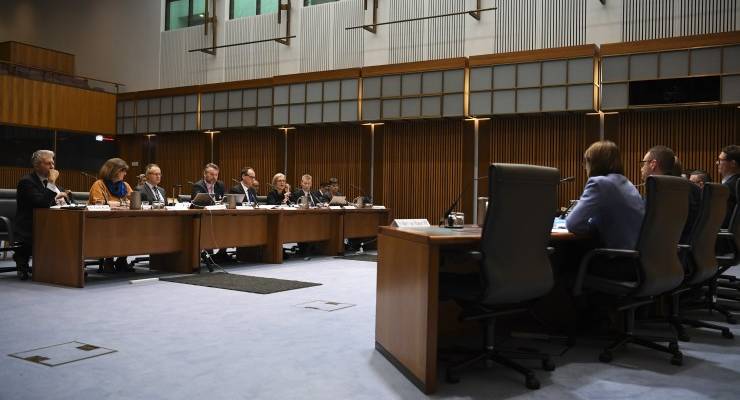
The clock is ticking. The Parliamentary Joint Committee on Corporations and Financial Services has just a few months to issue its final report on audit regulation.
And while that might not sound very sexy, the committee has the power to end the closed-shop discussions of a body that oversees rule-makers responsible for laws that force transparency on governments, companies and not-for-profits.
The committee, chaired by Liberal Senator James Paterson, will issue a final report in December and is yet to schedule further public hearings.
An interim report in February offered a suite of recommendations designed to make disclosures of audit firm tenure more transparent to shareholders. It also suggested the corporate regulator, the Australian Securities and Investments Commission (ASIC) improve its audit firm inspection regime.
What it has not yet done is address the secrecy that surrounds the meetings of the Financial Reporting Council (FRC).
FRC gets to make its own rules
The FRC oversees the accounting and auditing standard setters. It is scandalous that the law requires the Australian Accounting Standards Board and the Auditing and Assurance Standards Board to meet in public while the FRC, which has a secretariat based in federal Treasury, has never had the same degree of scrutiny. Its meeting room doors remain shut because the law allows it the luxury of making its own rules.
Although it publishes minutes of its meetings on a government website, there has never been a legislated requirement for it to meet in public since its creation in 1999, and the its operational guidance says the meetings will be held in private.
The council’s chairman, Bill Edge, has been in the spotlight over the past year because of a continuing retirement payment he receives from his former firm, PwC. Edge’s remuneration from the global accounting behemoth has been scrutinised as a potential conflict of interest: the FRC is responsible for oversight of accounting firms and their independence regimes as well as oversight of the two standard-setting workhorses.
This might all seem inconsequential to casual observers but there have been many times that public FRC meetings would have revealed apparent vested interests at play.
In 2002 it made a directive to adopt international accounting standards by 2005, meaning Australia would take the material developed by a London-based organisation and amend it only insofar as was required to make it roadworthy under Australian laws.
No transparency, no answers
Australians were unable to observe the different influences at play in getting to a decision, which surprised even the standard setter obliged to follow the direction and set standards in public.
There was also a directive on public sector accounting that was being driven in part by public-sector representatives on the FRC. The only way the public could find out what happened on that topic in meetings was when members of the Australian Accounting Standards Board complained at their own public meeting. They said they were being pressured by at least one member of the oversight body to tailor their decision making.
The then-chairman Jeff Lucy was not amused when he was confronted by board member concerns with people in the public gallery watching the encounter between the chair of the oversight body and the standard setters.
The dormant audit regulation probe has posed direct questions that relate to real or perceived conflicts of interest, but it has not asked Edge why the council does not choose to meet in public even if it is not bound by law to do so.
The line of questioning from Senator Deborah O’Neill, for example, focused heavily on the influence of major accounting firms. But accounting firms are not the only influential stakeholders in a taxpayer-funded, government-administered process.
As has been pointed out by Bernard Keane so often in Crikey, the government has its own conflicts of interest and those should never be beyond public scrutiny.
The Australian Accounting Standards Board and the Auditing and Assurance Standards Board are critical because they set the norms for how we as a community analyse the performance of companies, governments and other entities.
It is completely incongruous that the oversight body responsible for these processes has the luxury of meeting with the shutters down.








Secrecy is very rarely conducive to the common weal.
In the case of state or corporate governance, never.
Secrecy is power and Acton’s axiom remains relevant.